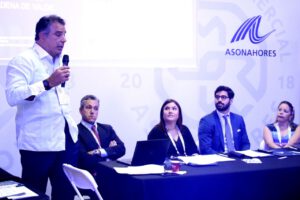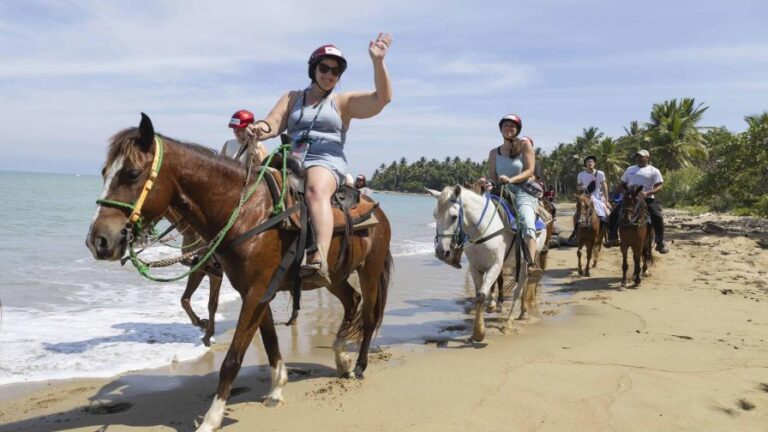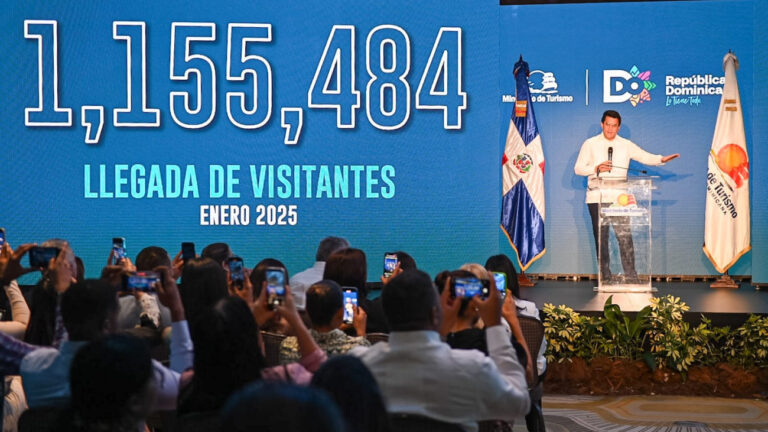La firma de abogados de la República Dominicana, DMK Abogados, celebró un seminario-taller titulado: “El Cumplimiento de las Obligaciones Fiscales a la Luz de la Ley de Lavado de Activos en el Sector Turístico y su Cadena de Valor”, el día 19 de septiembre, en el marco de la versión XXXII de la Exposición Comercial organizada por la Asociación de Hoteles y Turismo de la República Dominicana “ASONAHORES”, con la participación activa de los socios y asociados de la firma.
Ricardo Puente, socio de Jones Day, prestigiosa firma de abogados internacional cuya práctica se enfoca en el área de Instituciones Financieras- Litigios y Regulación, fue orador invitado de DMK Abogados.
El moderador del seminario lo fue el Socio-Gerente de DMK Abogados, Enrique De Marchena, una “figura líder” del sector turístico del país, quien expresó su preocupación sobre cómo la nueva ley de lavado de activos está afectando a las empresas en realizar sus transacciones cotidianas. «Es cierto que el clima de inversión en el país ha cambiado después de la promulgación de la ley, ya que muchos empresarios lo ven como una amenaza, particularmente en sectores económicos como el inmobiliario, automóviles, entre otros, pero también es cierto que el país no tenía otra opción «, expresó el Lic. De Marchena. «La transparencia y el cumplimiento son conceptos que llegaron para quedarse. Será la correcta aplicación de la ley por parte de las autoridades y el respeto al debido proceso lo que tendrá la última palabra».
Patricia Read, socia de DMK Abogados, abordó los cambios que trae esta Ley en comparación con el aprobado en 2002. «Esta ley incluye muchos más delitos precedentes, sanciones más severas, más obligaciones para los Sujetos Obligados y agrega más actividades y profesiones a quienes deben ser considerados Sujetos Obligados». Patricia Read también habló sobre el riesgo de no realizar un “Conoce a Tu Proveedor”, es decir, verificar adecuadamente los antecedentes de sus proveedores. «Usted podría ser sancionado por realizar transacciones con entidades y personas que están condenadas por lavado de activos, todo esto a pesar de que no sabía acerca de esta actividad ilegal. Bajo la nueva Ley es su deber investigar».
“No basta con conocer su cliente!” intervino Mr. De Marchena, “debe investigar y asegurarse que la información proporcionada sea precisas y correcta.” Más aun, “Mucho, no es suficiente. Debemos cumplir con apego lo que establece la ley.”
Las implicaciones fiscales bajo la nueva Ley de Lavado de Activos, fue expuesto por Andrés Ceara, Asociado de DMK Abogados, quien habló sobre la introducción del delito fiscal en los nuevos delitos precedentes del lavado de activos en la nueva ley.
Aunque recientes artículos periodísticos han declarado que la evasión fiscal será perseguida en virtud de la nueva Ley, Andres Ceará afirmó que «el público está siendo mal informado por los medios de comunicación, la evasión fiscal no es lo mismo que delito fiscal. La evasión fiscal no constituye un delito precedente en virtud de la nueva Ley y solo es perseguida por la Autoridad Tributaria, mientras que el Delito Fiscal es una cuestión judicial resuelta en los tribunales penales del país».
Agregó que «aunque los hoteles no son Sujetos Obligados según la nueva ley, muchas de las actividades que brindan las entidades relacionadas con hoteles o negocios si están reguladas, como joyerías, casinos, agencias inmobiliarias y la construcción, y por lo tanto deben tomar medidas preventivas e incorporarlas en el gobierno corporativo de la compañía«.
Ricardo Puente, socio de la firma internacional Jones Day, expuso sobre la experiencia global y dijo que «el sector turístico es tan grande y abarca tantas jurisdicciones; la mejor manera de abordar esto es bajo un alcance global y no como un asunto local o exclusivamente como un problema nacional». El Dr. Puente explicó sobre la evolución de las leyes y reglamentos contra el lavado de activos en los Estados Unidos, y los casos más importantes hasta el momento.
Los participantes al seminario incluyeron grandes nombres de la industria del turismo del país, incluidos presidentes, vicepresidentes, miembros de la junta y representantes legales de algunas de las principales cadenas hoteleras del país como Grupo Punta Cana, AMHSA Marina, Hoteles Bahía Príncipe, entre otros. También estuvieron presentes prominentes figuras públicas del sector.
DMK Abogados es una Firma Líder en Republica Dominicana, que se especializa en Corporativo y Comercial, Finanzas, Bienes Raíces y Turismo, Agencia y Distribución, Litigios, Laboral y Propiedad Intelectual, entre otros.
Fuente: Chambers and Partners[:en]
DMK Abogados of the Dominican Republic held a seminar-workshop titled “Complying with Tax Obligations in the Tourism Sector and Its Value Chain In The Light Of the Money Laundering Act” on September 19, 2018 during the XXXII Trade Fare organized by the Dominican Hotel and Tourism Association – ASONAHORES, with partners and associates of the firm actively participating.
Jones Day´s Global Disputes and Financial Institution & Regulation Partner, Ricardo Puente, who´s practice is focused on litigation and international arbitration, was a guest speaker of DMK Abogados.
Acting as the moderator of the seminar was Managing Partner, Enrique De Marchena, a “leading figure” in the country´s tourism sector, who expressed concern in how the new anti-money laundering law is affecting businesses conduct their everyday transactions. ”It´s true that the investment climate in the country has changed after the enactment of the law, as many businessmen see it as a threat, in particular economic sectors like real estate, automobiles, among others, but it´s also true that the country didn’t have any other choice” said Mr. De Marchena. “Transparency and compliance are concept that are here to stay. It will be the proper application of the law by the authorities and the respect of the due process that will have the final word.”
Patricia Read, Partner at DMK Abogados, addressed the changes this Law brings compared to the one passed in 2002. “This law includes much more predicate offences, tougher sanctions, more obligations to regulated entities, and adds more activities and professions to the regulated entities category”. Patricia Read also talked about the risk of not conducting an appropriate Know Your Provider to your suppliers. “You could be sanctioned for making deals with entities and people who are convicted of money laundering, even though you didn´t know about this illegal activity. It was your duty to investigate under the new Law”.
“Knowing you client is not enough!” intervened Mr. De Marchena, “you need to investigate and make sure the information given to you is accurate and correct”.
The highlight of the seminar, the tax implications under the new Anti-Money Laundering Law, was conducted by DMK Abogados´ up and coming star associate, Andres Ceara. He spoke about the introduction of tax crime in the new anti-money laundering predicate offences in the new Law.
Although recent newspaper articles have stated that tax evasion will be persecuted under the new Law, Mr. Ceara stated, “the public is being misled by the media, tax evasion is not the same as tax crime”. Tax evasion does not constitute a previous offence under the new Law and is only pursued by the Tax Authority, while Tax Crime is a judicial issued resolved in the country´s criminal courts”.
“Although Hotels are not regulated entities under the new law,” continued Andres Ceara, “many of the activities provided by Hotels related entities or business are regulated, such as jewelry stores, casinos, real estate agencies and construction and therefore should take preventive measures and incorporate them to the corporate governance of the company”.
Ricardo Puente, legal expert whose clients include both financial institutions and investors, provided a glimpse of the global experience in this matter and said “the tourism sector is so big and involves so many jurisdictions; the best way to address this is under a global scope and not as a local matter or exclusively as a national issue”. Mr. Puente explained the evolution of anti-money laundering regulations and laws in the United States, and the biggest cases so far.
Attendees of the seminar included big names in the tourism industry of the country, including presidents, vice presidents, members of the board and legal representatives of major Hotel chains such as Grupo Punta Cana, AMHSA Marina, Bahía Principe Hotels and others. Also present were prominent public figures of the area.
DMK Abogados is a Chambers & Partners´ Leading Firm, which specializes in Real Estate & Tourism, Corporate & Commercial, Finance, Distribution & Agency, Litigation, Labor and Intellectual Property Law.
Source: Chambers and Partners[:]



